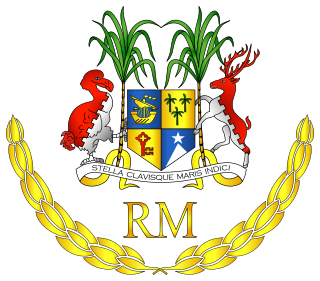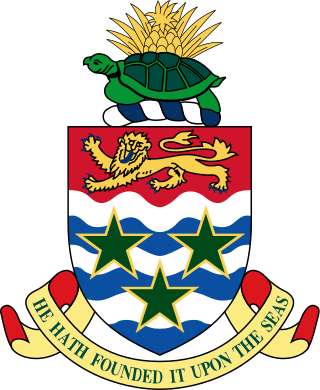
Mauritius, officially the Republic of Mauritius, is an island country in the Indian Ocean, about 2,000 kilometres off the southeastern coast of East Africa, east of Madagascar. It includes the main island, as well as Rodrigues, Agaléga, and St. Brandon. The islands of Mauritius and Rodrigues, along with nearby Réunion, are part of the Mascarene Islands. The main island of Mauritius, where the population is concentrated, hosts the capital and largest city, Port Louis. The country spans 2,040 square kilometres (790 sq mi) and has an exclusive economic zone covering 2,300,000 square kilometres.
The known and sometimes formally documented history of Mauritius begins with its possible discovery by Austronesians under the Austronesian expansion from pre-Han Taiwan, circa 1500 to 1000 BC, and then by Arabs,, followed by Portuguese and its appearance on European maps in the early 16th century. Mauritius was successively colonized by the Netherlands, France and Great Britain, and became independent on 12 March 1968.

Governor-general, or governor general, is the title of an office-holder. In the context of governors-general and former British colonies, governors-general are appointed as viceroy to represent the monarch of a personal union in any sovereign state over which the monarch does not normally reign in person. Governors-general have also previously been appointed in respect of major colonial states or other territories held by either a monarchy or republic, such as Japan in Korea and Taiwan and France in Indochina.

The British Overseas Territories (BOTs) are the fourteen territories with a constitutional and historical link with the United Kingdom that, while not forming part of the United Kingdom itself, are part of its sovereign territory. The permanently inhabited territories are delegated varying degrees of internal self-governance, with the United Kingdom retaining responsibility for defence, foreign relations, and internal security, and ultimate responsibility for "good" governance. Three of the territories are chiefly or only inhabited by military or scientific personnel, the rest hosting significant civilian populations. All fourteen have the British monarch as head of state. These UK government responsibilities are assigned to various departments of the Foreign, Commonwealth and Development Office and are subject to change.
Government House is the name of many of the official residences of governors-general, governors and lieutenant-governors in the Commonwealth and British Overseas Territories. The name is also used in some other countries.

"Motherland" is the national anthem of Mauritius. The music was composed by Philippe Gentil, and the English lyrics were written by Jean-Georges Prosper. The anthem is short and briefly describes the luscious landscape of Mauritius. It also mentions the qualities of its people: peace, justice and liberty.

The governor-general of Mauritius was the viceregal representative of the Mauritian monarch, Queen Elizabeth II in Mauritius from the country's independence on 12 March 1968 until it became a Commonwealth republic on 12 March 1992.

The President of the Republic of Mauritius is the head of state of the Republic of Mauritius. Mauritius is a parliamentary republic, and the president functions as a ceremonial figurehead, elected by the National Assembly as set out by the Constitution of Mauritius. The current office-holder is Prithvirajsing Roopun. He took the office on 2 December 2019. The president's official residence is the State House.

The national flag of Mauritius, also known as the The Four Bands, was adopted upon independence, 12 March 1968. It consists of four horizontal bands of equal width, coloured red, blue, yellow, and green. The flag was recorded at the College of Arms in London on 9 January 1968.

The governor of the Cayman Islands is the representative of the British monarch in the United Kingdom's overseas territory of the Cayman Islands. The governor, a civil servant who has in modern times typically been a British subject normally resident in the United Kingdom, is appointed by the monarch from the staff of the Foreign, Commonwealth and Development Office on the advice of the British government. The role of the governor is to act as the de facto head of state, and is responsible for appointing the premier, who is the leader of the party with a majority of seats in the Legislature.

The prime minister of Mauritius is the head of government of Mauritius. He presides over the Cabinet of Ministers, which advises the president of the country and is collectively responsible to the National Assembly for any advice given and for all action done by or under the authority of any minister in the execution of his office.

Elizabeth II was the only queen of the State of Malta, which existed from 1964 to 1974. The State of Malta was an independent sovereign state and a constitutional monarchy, which shared a monarch with other Commonwealth realms, including the United Kingdom. Elizabeth's constitutional roles in Malta were mostly delegated to a governor-general.

Mauritius, a small island in the southwest Indian Ocean, is important to the world of philately for a number of reasons. Its first two postage stamps issued in 1847, called the "Post Office" stamps, are of legendary rarity and value. They were the first stamps issued in any part of the British Empire outside of Great Britain. The unique cover bearing both "Post Office" stamps has been called "la pièce de résistance de toute la philatélie" or "the greatest item in all philately". The cover was sold at auction, in Zurich, on 3 November 1993, for 5.75 million Swiss francs, the equivalent of about $4 million – the highest price ever paid for a single philatelic item up to that time. In addition, Mauritius is well known for the subsequent locally produced issues known as "primitives," also prized by collectors.
The State House is the official residence of the President of Mauritius. Originally Le Réduit, it was built as a fortress for defence against attack by Pierre Félix Barthelemy David in 1749. The mansion is in Réduit, Moka, near of the University of Mauritius and the end of the Plaines Wilhems District. It used to serve as the residence for former governors of Mauritius, but now it is the residence of the President. It is built on 97 hectares of land. The château has a garden where a multitude of flowers grow, as well as exotic and native trees. The château is open to the public two days a year, in October and March. The house has persisted through history; it was destroyed by a cyclone, rebuilt, and has been renovated since. It is also used by the military.

Mauritius was a Crown colony off the southeast coast of Africa. Formerly part of the French colonial empire, British rule in Mauritius was established de facto with the invasion of Isle de France in November 1810, and de jure by the subsequent Treaty of Paris. British rule ended on 12 March 1968, when Mauritius became an independent country.

Between independence in 1968 and becoming a republic in 1992, Mauritius was an independent sovereign state that shared its head of state with the United Kingdom and other states headed by Elizabeth II.

Elizabeth II was Queen of Mauritius as well as its head of state from 1968 to 1992 when Mauritius was an independent sovereign state and a constitutional monarchy within the Commonwealth of Nations. She was also the monarch of other Commonwealth realms, including the United Kingdom. Her constitutional roles in Mauritius were delegated to a governor-general. Mauritius became a republic in 1992.

The Governor of Isle de France was an official who ruled Isle de France during the French colonial period between 1721 and 1810. After the Dutch abandoned Mauritius, the island became a French colony in September 1715 when Guillaume Dufresne d'Arsel landed and took possession of it, naming the island Isle de France. The French government turned over the administration of Mauritius to the French East India Company, but the island remained bereft of Europeans until 1721. Furthermore, until 1735, Isle de France was administered from Île Bourbon, now known as Réunion.
The following is a timeline of the history of the city of Port Louis on the island of Mauritius.




































